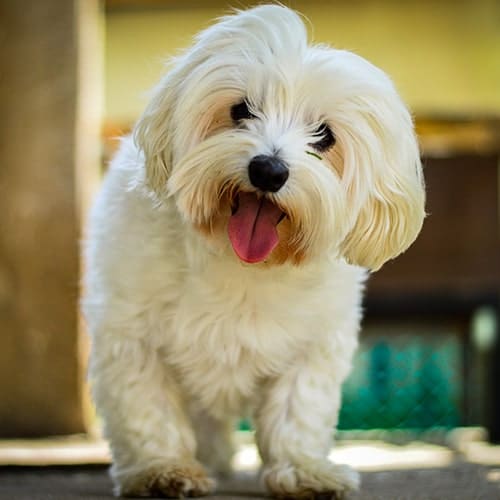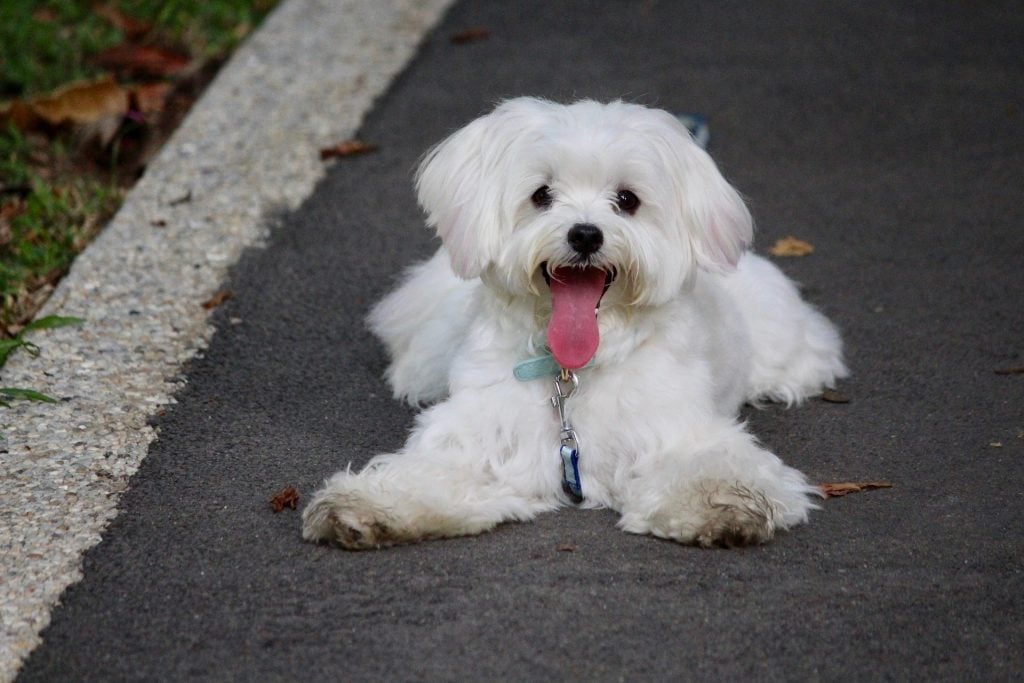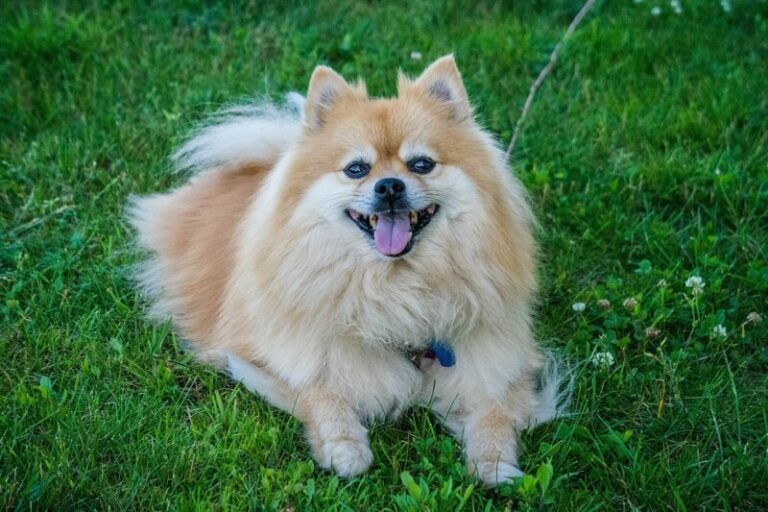The Maltese dog breed is a loving and gentle breed that is not very tolerant of low temperatures regarding their health. They are small but have prominent personalities and respond positively to reward-based training.
Grooming is crucial for this breed due to their long, silky, white coat. They are great with kids and surprisingly energetic. Avoid “teacup” Maltese pups, as they can have health issues. Maltese dogs are not “yappy” when trained right and fall in the middle of the healthy spectrum.
Despite their small size, they are fighters and make alert watchdogs. The Maltese is an ideal companion for older children and the elderly. The Maltese dog breed is known for its loving and gentle nature. These small-sized dogs are not very tolerant toward low temperatures and require regular grooming due to their long, silky, white coat. Despite their size, Maltese dogs have prominent personalities and respond well to reward-based training.
They are surprisingly energetic and great with kids. However, avoiding “teacup” Maltese pups is essential,, as they can have health issues. With proper training, Maltese dogs are not “yappy” and make alert watchdogs. They are an ideal companion for older children and the elderly due to their playfulness, energy, and affectionate nature.

Credit: www.rover.com
Introduction To the Maltese Dog Breed
Welcome to our comprehensive guide to the Maltese dog breed! Whether you’re considering getting a Maltese as a new addition to your family or want to learn more about this adorable breed, we’ve got you covered. This article will provide an overview of Maltese dogs, their temperament and characteristics, and their health and grooming needs.
Overview Of Maltese Dogs
The Maltese dog breed is known for its small size and luxurious white coat. These little fluffballs are often described as elegant, playful, and affectionate. Despite their tiny stature, Maltese dogs have prominent personalities and are loyal companions. Let’s take a closer look at some critical points about this breed:
- Size: The Maltese is a small breed, typically weighing between 4 and 7 pounds.
- Coat: Their coat is long, silky, and white, requiring regular grooming to keep it looking its best.
- Temperament: Maltese dogs are known for being gentle, loving, and friendly. They thrive on human companionship and make excellent family pets.
- Trainability: Maltese dogs are intelligent and eager to please. With proper training and socialization, they can quickly learn commands and tricks.
Temperament And Characteristics
Maltese dogs have a distinct personality that sets them apart from other breeds. Here are some key temperament traits and characteristics of the Maltese:
- Affectionate: Maltese dogs are known for their loving nature. They form strong bonds with their humans and enjoy cuddling and being held.
- Friendly: The Maltese is typically warm and gets along well with children, dogs, and cats. Proper socialization from a young age ensures they are well-adjusted and friendly.
- Playful: Despite their small size, Maltese dogs are lively and energetic. They enjoy interactive games and toys, making them an excellent choice for active families.
- Alert: Maltese dogs have a keen sense of hearing and are often vigilant watchdogs. They will bark to alert their owners of any potential threats or strangers.
Health And Grooming
When it comes to health and grooming, Maltese dogs require special attention due to their long and luxurious coats. Here are some essential factors to consider:
- Grooming: Regular grooming is essential for the Maltese breed to keep their coat free of mats and tangles. This includes daily brushing, regular baths, and periodic professional grooming.
- Exercise and Health: Maltese dogs need regular exercise to maintain their physical and mental well-being, despite their small size. Daily walks and playtime are essential to keep them happy and healthy.
- Common Health Issues: Maltese dogs are generally healthy, but they are prone to specific health issues such as dental problems, luxating patella (kneecap displacement), and eye conditions. Regular veterinary check-ups are essential to catch and address potential health problems early on.
Now that you have a better understanding of Maltese dogs’ introduction, temperament, characteristics, health, and grooming needs, you can decide whether this breed is right for you. Stay tuned for the following sections of our guide, where we will dive deeper into each aspect of owning and caring for a Maltese dog.

Credit: www.rover.com
Pros And Cons Of Owning A Maltese
The Maltese dog breed is a loving and gentle companion, but owning one has pros and cons. They are caring and affectionate, but their small size makes them prone to injury if mishandled. They may also be unsuitable for households with young children and energetic dogs.
Advantages Of Owning A Maltese
Owning a Maltese comes with several advantages that make them a popular choice for dog owners:
- 1. Caring and affectionate: Maltese dogs are known for their loving and gentle nature. They form strong bonds with their owners and are always eager to please.
- 2. Moderate Energy Level: Maltese dogs have surprisingly much energy despite their small size. They enjoy regular playtime and exercise, making them an excellent choice for active individuals or families.
- 3. Good with Kids: While it is important to supervise interactions between small dogs and young children, Maltese dogs are generally good with kids. They are patient and tolerant, making them suitable companions for families.
- 4. Low Shedding: Maltese dogs have a hypoallergenic coat that sheds very little. This makes them an excellent choice for individuals with allergies or who prefer a clean home.
- 5. Adaptable: Maltese dogs can adapt well to various living situations, including apartments. They don’t require a large yard and are comfortable in smaller spaces.
Disadvantages Of Owning A Maltese
While Maltese dogs have many positive traits, there are also some challenges to consider when owning this breed:
- 1. Fragile: Maltese dogs are delicate and prone to injuries due to their small size. Handling them with care and keeping a watchful eye to prevent accidents is essential.
- 2. High Maintenance Coat: The beautiful, long, silky white coat of Maltese requires regular grooming to keep it looking its best. This includes daily brushing and periodic professional grooming sessions.
- 3. Separation Anxiety: Maltese dogs can be prone to separation anxiety when left alone for long periods of time. They thrive on companionship and may become stressed or anxious when left alone.
- 4. Prone to Certain Health Issues: While generally healthy, Maltese dogs can be prone to dental problems, allergies, and tear stains. Regular veterinary check-ups are essential to catch any potential health issues early.
Despite these challenges, many owners find the joys of owning a Maltese far outweigh the disadvantages. With proper care, training, and attention, Maltese dogs make wonderful companions and can bring endless love and joy into your life.
Special Considerations For Owning A Maltese
If you are considering adding a Maltese to your family, you need to keep a few special considerations in mind. This small and adorable breed has unique needs and characteristics that require careful attention. This section will explore the ideal owners for Maltese dogs, the importance of training and socialization, common health issues, and tips for choosing a Maltese puppy.
Ideal Owners For Maltese Dogs
Maltese dogs are well-suited for various types of owners, but they thrive best in specific environments. If you are considering bringing a Maltese into your home, here are some factors to keep in mind:
- Maltese dogs are small and perfect for individuals or families living in apartments or houses with limited space.
- They are generally better suited to households without young children, as their delicate size makes them vulnerable to accidental injuries.
- Maltese dogs are highly social and prefer being around their owners most of the time. They may experience separation anxiety if left alone for long periods.
- Owners who are patient, gentle, and willing to invest time in training and grooming will have a harmonious relationship with their Maltese.
Training And Socialization
Training and socialization are crucial for the well-being and happiness of a Maltese dog. Despite their small size, they possess solid personalities and willfulness. Here are some key points to consider:
- Early training is essential to establishing good behavior and obedience. Positive reinforcement methods, like treats and praise, work well with these intelligent dogs.
- Consistency and patience are key when house-training a Maltese. Crate training can be efficient for teaching them good bathroom habits.
- Maltese dogs can sometimes tend to bark excessively. Proper training and socialization can help minimize this behavior, making them pleasant companions.
- Socializing your Maltese from a young age helps them become comfortable around people, animals, and various environments. Enroll them in puppy classes or meetups to expose them to different situations.
Common Health Issues
Maltese dogs are susceptible to specific health problems despite their overall healthy disposition. Keeping a close eye on their well-being and addressing any issues promptly is crucial. Some common health issues found in Maltese dogs include:
| Health Issue | Description |
|---|---|
| Patellar Luxation | This condition occurs when the kneecap slips out of place, causing pain and difficulty with mobility. Regular exercise and maintaining a healthy weight can help prevent this issue. |
| Portosystemic Shunt | A liver abnormality where blood bypasses the liver leads to toxins that are not adequately filtered. If left untreated, it can result in serious health complications. Regular veterinary check-ups are essential to detecting and managing this condition. |
| Dental Problems | Maltese dogs are prone to dental issues such as tooth decay and gum disease. Regular brushing and professional dental cleanings can help maintain their oral health. |
Choosing A Maltese Puppy
When selecting a Maltese puppy, it is essential to ensure that you find a healthy and well-bred dog. Consider the following tips:
- Research reputable breeders, or consider adopting from a rescue or shelter.
- Visit the breeder or rescue organization to assess the puppies’ health conditions.
- Observe the puppy’s behavior and temperament to ensure it aligns with your lifestyle and preferences.
- Ask for health clearances and documentation of vaccinations and worming.
- Ensure that both the puppy’s parents have been health-tested to reduce the risk of genetic health issues.
By following these guidelines, you can find a loving and healthy Maltese puppy that will bring years of joy to your life.

Credit: m.youtube.com
Frequently Asked Questions Of All You Need To Know About Maltese Dog Breed
What Do I Need To Know About Owning A Maltese?
Owning a Maltese requires regular maintenance due to their long, silky coat. They are playful, moderate-energy dogs with a willful personality. Maltese are affectionate but not recommended for young children or boisterous dogs, as they can easily be injured.
They make great companions for older, gentle children and the elderly. Maltese are alert watchdogs but may bark excessively.
Is Maltese A High Maintenance Dog?
Maltese dogs are not high maintenance but require regular grooming due to their long white coat. They are playful and have moderate energy levels. With their small size and willful personalities, they respond well to reward-based training.
What Are The Pros And Cons Of A Maltese?
The Maltese is a caring, affectionate dog that loves people. They are tiny and delicate, so they may not be suitable for young children or boisterous dogs. They can easily get injured if mishandled. However, their playfulness, energy, and affection make them great companions for older children and the elderly.
They are also alert watchdogs, but they may bark more than necessary.
What Is Special About Maltese Dog?
The Maltese dog is unique because of its playful nature, energy, and affectionate personality. It is an ideal companion for gentle children and older people. While it is a good watchdog, it may bark excessively.
Conclusion
To sum up, the Maltese dog breed is a loving and gentle companion. Although they do not tolerate low temperatures, they are not “yappy” when appropriately trained. These dogs are playful and energetic, making them great for older children and the elderly.
Regular grooming is essential due to their long, silky coat. Overall, the Maltese breed is a delightful and loyal addition to any family.

